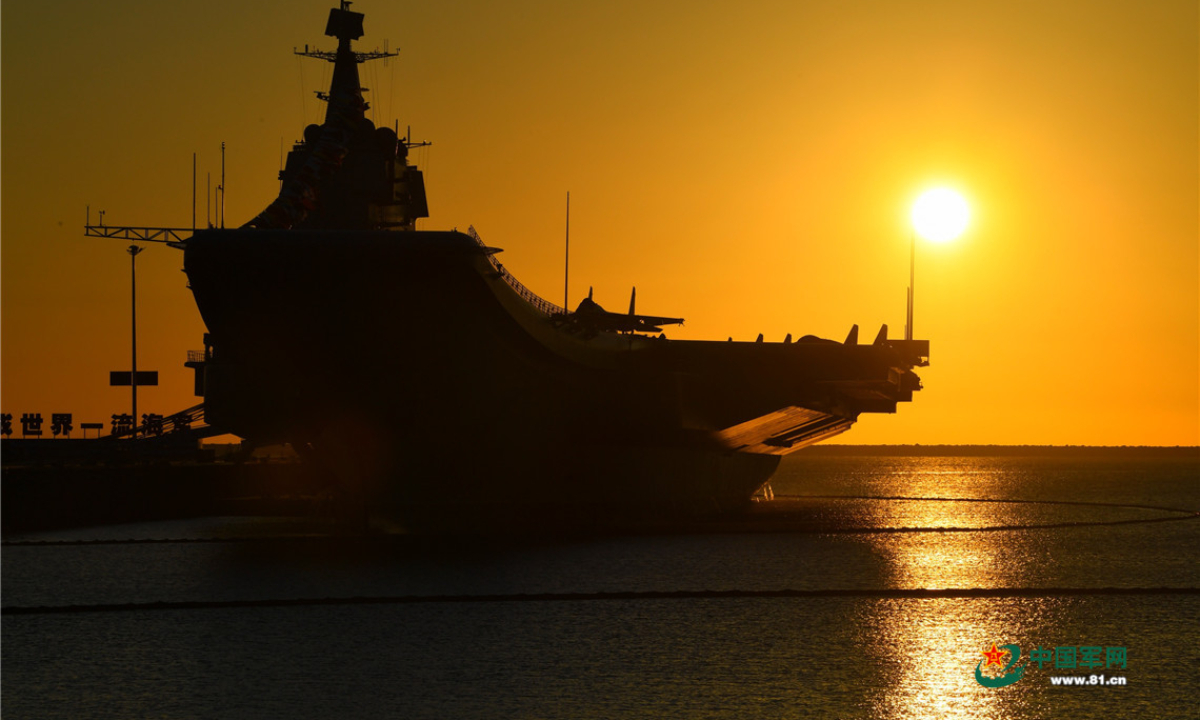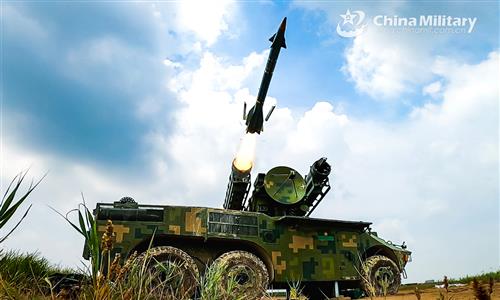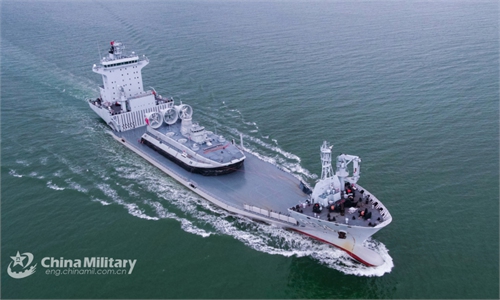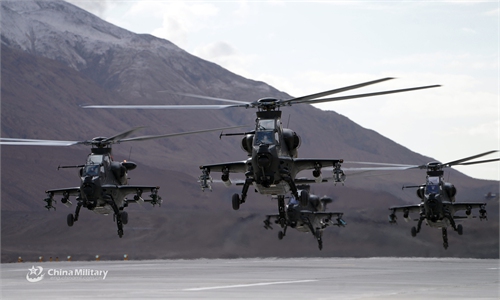China's aircraft carrier Shandong sails past Taiwan island for second far sea drill of the year, two days after US and Canadian warships' provocative Straits transit

The picture shows aircraft carrier Shandong berths at a naval port in Sanya. China's first domestically-made aircraft carrier Shandong (Hull 17) was officially commissioned to the PLA Navy at a military port in Sanya, South China's Hainan Province, on the afternoon of December 17, 2019, making China one of the few countries in the world that have multiple carriers. Photo:China Military
China's aircraft carrier Shandong reportedly sailed past the island of Taiwan and entered the West Pacific on Monday for its second far sea exercise of the year, two days after US and Canadian warships made a provocative transit in the Taiwan Straits.
The Shandong aircraft carrier group of the Chinese People's Liberation Army (PLA) Navy on Monday morning sailed in waters 60 nautical miles southeast of Cape Eluanbi, the southernmost point of Taiwan island, east toward the West Pacific for an exercise, the defense authority on the island of Taiwan said in a Monday press release.
Around the same time period, 13 PLA aircraft including J-16 and Su-30 fighter jets, KJ-500 early warning aircraft and drones, were spotted around the island, 11 of which crossed the so-called median line or entered the island's self-proclaimed southwest air defense identification zone, according to the press release.
This marks the second time the aircraft carrier Shandong has embarked on a far sea exercise into the West Pacific, following the first that took place in April. The carrier group in April first sailed to the east of the island of Taiwan to take part in combat alert patrols and "Joint Sword" exercises encircling the island, then reached waters west of Guam, before returning through the Bashi Channel to the South China Sea, hosting over 620 aircraft sorties in the month-long exercise, according to releases from Japan's Ministry of Defense Joint Staff.
The second voyage is expected to see an improvement on the first one, as the carrier Shandong will likely continue to practice surrounding the island of Taiwan from its east, cutting down potential escape routes of "Taiwan independence" secessionist forces and keeping external interference forces at bay, a Chinese mainland military expert who requested anonymity told the Global Times on Monday.
It will be interesting to see how many sorties the Shandong will host this time, and to what extent the carrier group will collaborate with other military services and branches, like bombers and tankers of the Air Force and anti-ship ballistic missiles of the Rocket Force, the expert said.
The Shandong carrier group will likely practice anti-aircraft, anti-submarine, anti-ship and land attack, Chinese mainland military expert Song Zhongping told the Global Times on Monday.
It is important for PLA aircraft carriers to train frequently in the West Pacific in order to become familiar with the region, Song said.
The PLA Navy's two active carriers, the Liaoning and the Shandong, have both in their previous far sea exercises not only sailed near the island of Taiwan, but also approached Guam, a militarized island used by the US as a key node in the second island chain.
"If Guam were to be an outpost to wage wars, it would not be secure even if it were armed to the teeth," Senior Colonel Wu Qian, a spokesperson at China's Ministry of National Defense, said at a regular press conference on August 31, responding to the US plan to make Guam the most densely protected place on the planet.
Two days before the Shandong's voyage past the island of Taiwan, the US Navy destroyer USS Ralph Johnson and the Canadian Navy frigate HMCS Ottawa on Saturday sailed through the Taiwan Straits, and their transits were tracked, monitored and handled in accordance with the law by naval and air forces of the PLA Eastern Theater Command, Senior Colonel Shi Yi, a spokesperson at the command, said in a statement on the day.
Zhang Junshe, a senior research fellow at the Naval Research Academy of the PLA, told the Global Times that from a military point of view, external forces' attempts to deter the Chinese mainland by making warship transits in the Taiwan Straits are beyond their capabilities, as the narrow Straits can be fully covered by the mainland's coastal defense fire, making them easy targets.




